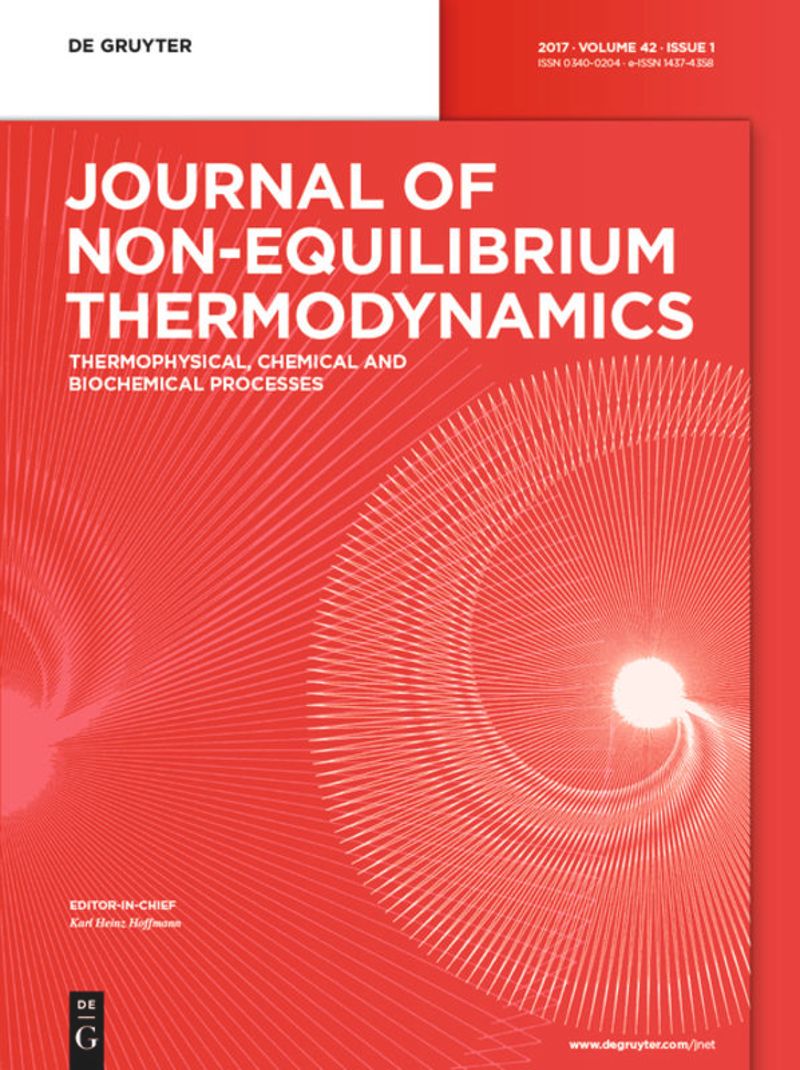权衡利弊下的量子谐波奥托发动机和制冷机性能分析
IF 4.2
3区 工程技术
Q1 MECHANICS
引用次数: 0
摘要
我们研究了时变谐波振荡器的量子奥托发动机和制冷循环在绝热和非绝热(突然切换)频率调制的优劣权衡下的最佳性能。对于热机(制冷机)而言,所选择的权衡优点是一个目标函数,由效率(性能系数)和功输出(制冷负荷)的乘积定义,因此代表了两者之间的折衷。我们获得了谐波奥托循环的效率和性能系数的分析表达式,从而使热机在各种运行状态下都能达到最佳性能。特别是在突然开关状态下,我们讨论了非绝热驱动对所考虑的热机性能的影响,并获得了谐波奥托热机的最大可实现效率和性能系数的解析表达式。特别是,我们证明了由突然开关协议驱动的量子谐波奥托循环在低温极限下不能作为热机或冰箱工作。最后,我们证明了在高温极限下,摩擦效应会使谐波奥托循环的相图结构更加丰富。我们确定了奥托循环作为热机、冰箱、加速器和加热器运行的参数机制。本文章由计算机程序翻译,如有差异,请以英文原文为准。
Performance analysis of quantum harmonic Otto engine and refrigerator under a trade-off figure of merit
We investigate the optimal performance of the quantum Otto engine and refrigeration cycles of a time-dependent harmonic oscillator under a trade-off figure of merit for both adiabatic and nonadiabatic (sudden-switch) frequency modulations. For heat engines (refrigerators), the chosen trade-off figure of merit is an objective function defined by the product of efficiency (coefficient of performance) and work output (cooling load), thus representing a compromise between them. We obtain analytical expressions for the efficiency and coefficient of performance of the harmonic Otto cycle for the optimal performance of the thermal machine in various operational regimes. Particularly, in the sudden-switch regime, we discuss the implications of the nonadiabatic driving on the performance of the thermal machine under consideration and obtain analytic expressions for the maximum achievable efficiency and coefficient of performance of the harmonic Otto thermal machine. Particularly, we show that the quantum harmonic Otto cycle driven by sudden-switch protocol cannot work as a heat engine or refrigerator in the low-temperature limit. Finally, we show that in the high-temperature limit, the frictional effects give rise to a richer structure of the phase diagram of the harmonic Otto cycle. We identify the parametric regime for the operation of the Otto cycle as a heat engine, refrigerator, accelerator, and heater.
求助全文
通过发布文献求助,成功后即可免费获取论文全文。
去求助
来源期刊
CiteScore
9.10
自引率
18.20%
发文量
31
审稿时长
1 months
期刊介绍:
The Journal of Non-Equilibrium Thermodynamics serves as an international publication organ for new ideas, insights and results on non-equilibrium phenomena in science, engineering and related natural systems. The central aim of the journal is to provide a bridge between science and engineering and to promote scientific exchange on a) newly observed non-equilibrium phenomena, b) analytic or numeric modeling for their interpretation, c) vanguard methods to describe non-equilibrium phenomena.
Contributions should – among others – present novel approaches to analyzing, modeling and optimizing processes of engineering relevance such as transport processes of mass, momentum and energy, separation of fluid phases, reproduction of living cells, or energy conversion. The journal is particularly interested in contributions which add to the basic understanding of non-equilibrium phenomena in science and engineering, with systems of interest ranging from the macro- to the nano-level.
The Journal of Non-Equilibrium Thermodynamics has recently expanded its scope to place new emphasis on theoretical and experimental investigations of non-equilibrium phenomena in thermophysical, chemical, biochemical and abstract model systems of engineering relevance. We are therefore pleased to invite submissions which present newly observed non-equilibrium phenomena, analytic or fuzzy models for their interpretation, or new methods for their description.

 求助内容:
求助内容: 应助结果提醒方式:
应助结果提醒方式:


